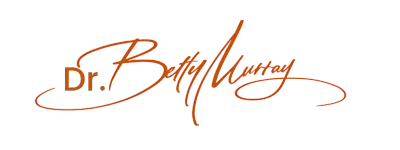
How to Actually Feel Less Stressed (Especially If You're Over 40 and Hormones Are Tanking)
How to Actually Feel Less Stressed (Especially If You're Over 40 and Hormones Are Tanking)
You’ve tried deep breathing. You’ve bought the lavender essential oils. You’ve even meditated (once or twice). And still? You’re wired, tired, short-tempered, and one minor inconvenience away from losing it.
Let me be blunt: if you’re over 40, managing stress is not just about mindfulness. It’s about chemistry.
Because what most people don’t realize is that your ability to handle stress is directly tied to your hormones. So if you’re in perimenopause, menopause, or just “feeling off,” you’re not broken—you’re biologically overwhelmed.
Let’s break it down.
The Hormone–Stress Loop That’s Running Your Life
When stress hits, your body releases cortisol—your primary stress hormone. That’s normal. What’s not normal? Chronic stress plus declining estrogen and progesterone. That combo leaves your nervous system in overdrive.
Here’s what’s happening:
Estrogen helps regulate cortisol and supports serotonin, your feel-good neurotransmitter. When estrogen drops (hello, perimenopause), your resilience to stress tanks. Small things feel huge.
Progesterone acts on GABA receptors—the calming, anti-anxiety chemical in your brain. When progesterone dips, your GABA support disappears. Anxiety ramps up. Sleep suffers. Emotional stability? Gone.
Cortisol, when chronically elevated, drains your energy, wrecks your metabolism, disrupts sleep, and short-circuits your brain’s ability to think clearly or cope.
So no, it’s not “just stress.” It’s your stress-response system malfunctioning because your hormones are out of sync.
The Physical Symptoms of Stress Are Not in Your Head
Women under chronic stress often feel:
Fatigue, even after a full night’s sleep
Brain fog or forgetfulness
Anxiety, irritability, or sadness
GI issues (bloating, constipation, IBS flares)
Cravings for sugar or carbs
Sleep issues—either trouble falling or staying asleep
Increased pain, joint stiffness, or muscle tension
And if you have conditions like hypothyroidism, fibromyalgia, or autoimmune issues? Stress can be a full-on symptom amplifier.
What Actually Helps You Feel Less Stressed
You need more than breathing exercises. You need to rebalance your body’s chemistry and calm your nervous system at the source.
Here’s how we do it in functional medicine:
✅ Test your hormones—estrogen, progesterone, cortisol, thyroid
✅ Balance with BHRT—bioidentical hormone therapy to restore stability and improve stress tolerance
✅ Support your adrenals—with adaptogens like ashwagandha, phosphatidylserine, rhodiola
✅ Blood sugar stability—less rollercoaster = less cortisol
✅ Nervous system regulation—daily movement, breathwork, cold exposure, nature
✅ Cognitive behavioral therapy or somatic release—to rewire chronic stress patterns
✅ Anti-inflammatory diet—because inflammation is a stressor too
Don’t Sleep on Exercise (Literally)
One of the most powerful stress-busting tools you have? Exercise.
Boosts endorphins = natural mood elevation
Regulates insulin and cortisol
Improves sleep quality
Enhances focus and emotional resilience
Literally rewires the brain to be more stress-resilient
Whether it’s walking, lifting, yoga, or dancing—movement is medicine. Especially if you’re in hormone transition.
Final Word: You Deserve a Nervous System That Feels Safe Again
You don’t have to live in fight-or-flight. You don’t have to “push through.” And you certainly don’t have to wait until burnout turns into a full health crash.
👉 Book your consult at getmerva.com
👉 Let’s test your hormones, evaluate your stress chemistry, and build a strategy that helps you feel calm, clear, and in control—again.


